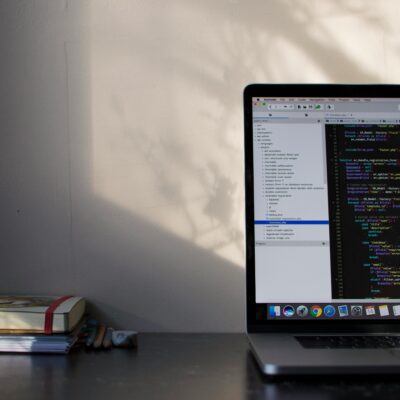Are you tired of your PC or laptop running slower than a snail on a lazy Sunday afternoon? Well, fear not! In this blog post, we will unleash the top tips to optimize your device’s performance and have it running smoother than ever before. Say goodbye to frustrating lag times and hello to seamless multitasking – let’s dive in!
Common Causes of Poor Performance
Ever found yourself wondering why your once lightning-fast PC or laptop has suddenly hit a speed bump? Well, there are several common culprits behind poor performance that could be causing your device to drag its feet.
First up, let’s talk about the dreaded clutter and bloatware. Over time, unused files, applications running in the background, and unnecessary programs can clog up your system and slow it down.
Next on the list is insufficient storage space. Running low on disk space can severely impact your device’s performance as it struggles to juggle tasks without enough room to breathe.
Outdated hardware components may also be to blame for sluggish performance. If your processor or RAM isn’t up to par with today’s demands, you might experience delays and bottlenecks while using your device.
Malware and viruses can wreak havoc on your system, causing everything from random pop-ups to data loss. It’s crucial to keep your security software updated and perform regular scans to keep these digital pests at bay.
Hardware Upgrades: When to Invest in Them
Is your PC or laptop struggling to keep up with your daily tasks? It might be time to consider hardware upgrades to boost its performance. Knowing when to invest in new hardware can make a significant difference in how efficiently your device runs.
If you find that your computer is slow when opening programs, accessing files, or multitasking, it could be a sign that upgrading the RAM or storage capacity is necessary. Upgrading these components can help speed up processes and improve overall performance.
Another indication that it’s time for a hardware upgrade is if your system struggles to handle demanding software or games. Investing in a better processor or graphics card can provide the power needed to run resource-intensive applications smoothly.
Keep an eye on how old your current hardware is as well. Components have a lifespan, and replacing outdated parts can breathe new life into your PC or laptop. Researching the latest advancements in technology can guide you on when it’s best to make an investment in upgrading your hardware for optimal performance.
Software Optimization Techniques
Software optimization is key to maximizing your PC or laptop’s performance. One technique is to uninstall any unnecessary programs that are taking up valuable space and slowing down your system. You can also disable startup programs that you don’t need running in the background, which can help speed up boot time.
Another useful tip is to regularly update your operating system and software applications. Updates often include bug fixes and performance enhancements that can improve overall efficiency. Additionally, consider using a reliable antivirus program to keep malware at bay, as viruses can significantly impact system speed.
Furthermore, organizing your files into folders and removing temporary files can free up disk space and contribute to smoother operation. Defragmenting your hard drive periodically can also help optimize file storage for faster access times.
Consider using optimization tools like disk cleanup utilities or registry cleaners to streamline system performance even further. By implementing these software optimization techniques, you’ll notice a significant improvement in your device’s speed and responsiveness.
Cleaning and Maintenance Tips
Maintaining a clean and well-maintained PC or laptop is crucial for optimal performance. Start by regularly cleaning the exterior surfaces with a soft, dry cloth to prevent dust buildup. Dust can clog vents and fans, causing overheating and slowing down your device.
For a deeper clean, use compressed air to blow out any debris from the keyboard, ports, and cooling vents. This will help improve airflow and prevent potential hardware issues. Be gentle when cleaning delicate components to avoid damage.
It’s also important to organize your files and applications regularly. Delete unnecessary files, uninstall unused programs, and run disk cleanup tools to free up storage space. This can help speed up your system and improve overall efficiency.
Don’t forget about software updates! Keeping your operating system and drivers up-to-date is essential for security patches and performance enhancements. Set reminders for regular maintenance tasks to ensure your PC or laptop stays in top shape for years to come.
Importance of Regular Updates and Backups
Regular updates and backups are crucial for maintaining the performance and longevity of your PC or laptop. By staying up to date with software upgrades, you can ensure that your system is running efficiently and securely. Backing up your important files regularly will protect them from potential data loss in case of a hardware failure or malware attack.
Remember, optimizing your PC or laptop’s performance is an ongoing process that requires attention to both hardware and software aspects. By following the top tips mentioned in this article, you can keep your device running smoothly and maximize its capabilities. Stay proactive in maintaining your system to enjoy a seamless computing experience!






